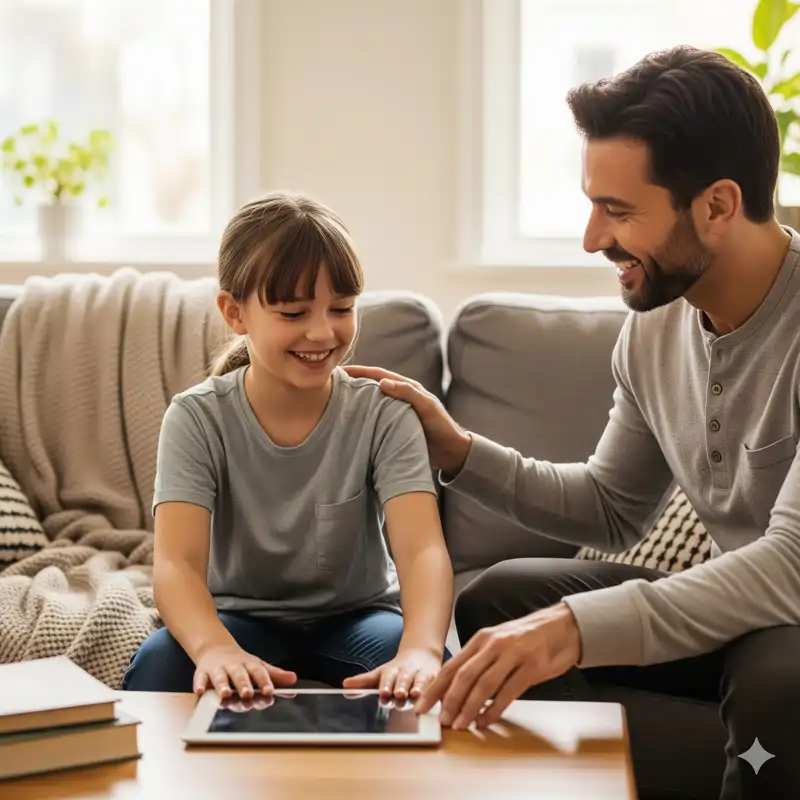Think like an adult:
You are scrolling through social media, writing a message, or playing a game… How would you feel if someone took your phone from your hand at that moment? You would most likely feel annoyed and react. The same is true for children.
Establish Dialogue Instead of Taking by Force
- Forcibly taking a device triggers feelings of anger, resentment, and insecurity in a child.
- This situation can weaken the parent-child bond and shut down communication.
- When your child internalizes the thought, “My mom/dad will take my phone away,” they may tend to withdraw from you.
Healthy Alternative: Mutual Agreement
- Talking beforehand about when screen time should end is the healthiest approach.
- Having the child turn off the device voluntarily develops both a sense of responsibility and self-control skills.
- This approach is a parenting model of guidance, not punishment.
For Parents Who Say, “But My Child Won’t Stop”
- The problem is often not the child, but the result of screen habits within the home environment.
- Research shows that parents look at screens more than children do.
- If you want to reduce your child’s screen time, you must first reduce your own.
4 Golden Rules for Psychological Health in Screen Use
- Screen-Free Meals: Family meals are a time for face-to-face communication and bonding.
- A Screen-Free Hour: Stay away from screens for one hour every day, especially in the evening.
- A Screen-Free Evening: Spend at least one evening a week completely away from screens.
- A Screen-Free Day: Have a full family screen detox at least one day a month.
Why Is This So Important?
- Sudden screen interruptions raise stress hormones (cortisol) in the child and increase the likelihood of conflict.
- Mutually agreed-upon rules strengthen both the child’s psychological resilience and trust within the family.
- Screen-free time develops a child’s real-life social skills, attention span, and emotional intelligence.
The way to make your child’s relationship with screens healthy is not to snatch the device from their hand, but to be a role model, to guide, and to set boundaries together.

